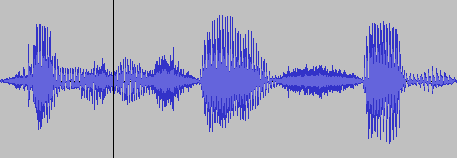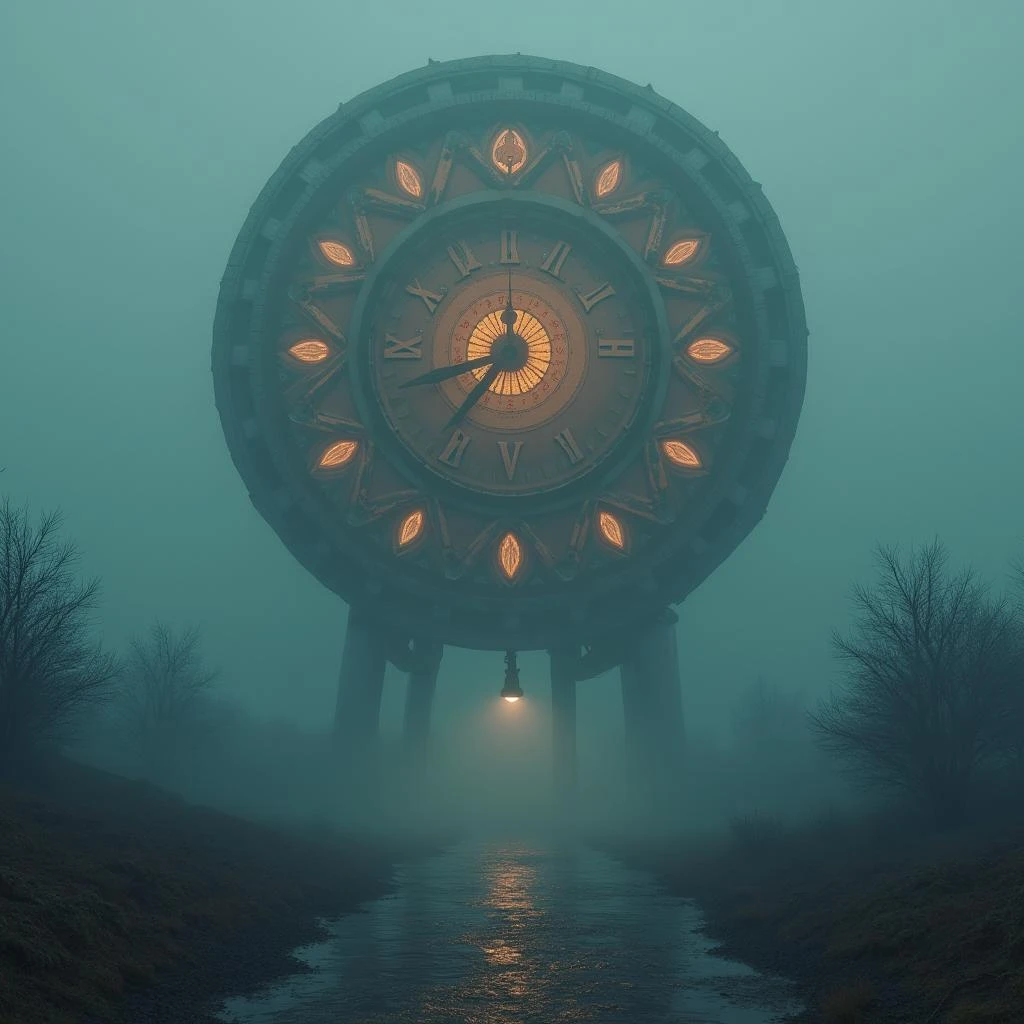There is Only Now
Published: 2024-09-10
Understanding your relationship with time is one of the most important and liberating concepts you can explore. There’s a lot that we take for granted about time which, when understood, can instantly and completely change how you experience life.
Of course, we’re always busy imagining a future which never quite happens how we’d expected, or remembering a past; which is only a vague shadow of the real thing. Yet we have a strong sense that we can predict and control the future, and that our memory of the past is true and accurate.
In reality, memory is not completely accurate and reliable, and things never turn out exactly how we’d expect. The future and the past truly only exist in our minds as we remember or imagine them. Have you ever been so sure about a memory, only to find your memory was inaccurate or even false? Or have you ever imagined a future scenario and found the real event surprisingly different to what you’d expected?
It’s a strange thing to get your head around because we ultimately must rely on the past and future, or we’d not be able to function and interact with the world. Our understanding of life depends on the past, and our anticipation of the future (based on our memory of the past) allows us to navigate the world.
Our relationship with past and future are clearly important, but if you’re constantly absorbed with an old memory or a potential future, you can very easily become burnt out.
While we do need to remember things and plan ahead, it’s incredibly important to realise that past and future simply do not exist. They are constructs we’ve created to help us to interact with the world and each other.
The future is a concept. It doesn’t exist. As the proverb says “tomorrow never comes”.
There is no such thing as tomorrow, there never will be. Because time is always now.
That’s one of the things we discover when we stop talking to ourselves, stop thinking; we find there is only a present; only an eternal now.
Alan Watts
It’s so easy to get wrapped up in thinking of the future, we often forget about the present for days, weeks, or even a whole lifetime. If you’re not careful, this can become your self-made prison; a world where you can never enjoy today for the fear of what tomorrow may bring.
The problem comes from believing that we need to control the future and that it’s actually possible to control the future. While we may be able to influence the future, our actual control over it is very limited. We imagine life like a mechanical instrument, where you operate a switch and things happen in the exact way they were programmed, when it’s a lot more like sailing a boat on a river; you can control the boat to a degree, but ultimately you are at the mercy of the river.
At first it can feel restricting to think you’re not able to control things as much as you’d like. But accepting this reality is actually liberating. When you accept what you can control, you can start to focus your energy on what you can change and stop worrying about the things you can’t.
“Accept what you cannot change, and change what you cannot accept”
It’s not possible to be prepared for every scenario, and by the time it comes around, so much will have changed, your expectations would likely be outdated anyway.
A man lived in a small village. One day his only horse ran away. The villagers said, “how misfortunate!”, to them the man replied, “perhaps”.
A week later when the horse returned with seven more wild horses, the villagers commented, “how lucky! You’ve now increased your wealth by seven times, it’s a good thing your horse ran away after all!”, again the man replied, “perhaps”.
The following day, the son of the man broke his arm trying to train one of the horses. Again the villagers chimed in, “how terrible it was that your horse ran away; now your son is injured and cannot work!”, the man replied, “perhaps”.
The next day the military came by to conscript all the young men of the village. The villagers said “what luck! Had your son not broken his arm he would be conscripted to the military, it’s a good thing your horse ran away after all!”, once again the man replied, “perhaps”.
The Zen story illustrates the unpredictable path of life, which in retrospect always seems to make sense, but we actually don’t know what’s going to happen next. The villages are our own internal commentary, thinking they know something about how these events unfolded and the man represents the wisdom to know that you couldn’t reliably have predicted any of these things anyway.
On another level, if we could reliably predict what was going to happen next, there would be no sense of adventure in life. Watching a movie to which you already know the ending or playing a game in which you always win; it’s just not as fun or exciting.
When you worry about the future, you’re borrowing happiness from the present moment for a potential future that you can’t do anything about now anyway.
It’s actually a great shame that we do this; we spend our lives worrying about things we can’t control while life gently passes us by. It’s like we’re always looking over our shoulder for something that isn’t there, while in front of us there is infinite peace.
As you explore this idea more, you will find that you can almost always find peace in any moment by letting go of identification with the past and letting go of trying to control the future. All there is, is now and not much else really matters. There is a time for rational planning of course, but if you don’t stop and appreciate the moment every now and then, life will pass you by.
I strongly encourage you to explore and challenge this in your own way. Your relationship with time can drastically affect your day-to-day life, the key is to balance reflection and planning with respect for the present moment. You can’t live in the moment all the time - or at least, not effectively - but likewise, it’s not healthy to think only of the past or future.
Whatever you think is important this week might not be so important next week, and certainly won’t be so important next month or next year. Bringing yourself back to the present moment often - and remembering that this experience that is happening right now is the true reality - can equally remind you of what’s really important.
Ultimately, the thing that causes us distress is not so much our interaction with time, but our emotional relationship with it; our attachment to it. If you can plan for the future without it changing how you feel now, you’re in a good place.
Our idea of time flows linearly, past > present > future. An audio waveform is a great depiction of this; vibrations over time. In the image below, the black line represents now, and the left is the past, the right the future. The black line is always moving to the right.

This way of looking at time implies the past is something that always exists and the future is something that is predetermined. However, Alan Watts suggests that the past doesn’t exist at all and that the future never will exist. A better illustration might be more like this:
Where now is the centre, emanating out, creating the past and the future as experienced only in our minds.
Understanding all this is one thing, but actually becoming free of future and past is another challenge altogether - however it is absolutely possible and we’ll learn how to do this in the coming chapters.
Suggested Meditations
- How long is a moment?
- Who would you be if you had amnesia and forgot all your memories?
- What happened yesterday? How real does it feel in comparison to this exact moment?
- How would daily life feel if you lived in a place where there were no appointments and you didn’t have a man-made way of telling the time?
- Is the speed of time consistent? Why do some moments seem longer than others?
- If you’re always waiting for tomorrow to come, how does that affect now? How will it affect you tomorrow if you’re still waiting? When will you be satisfied?
